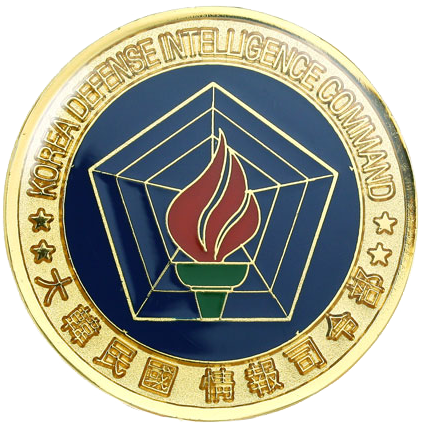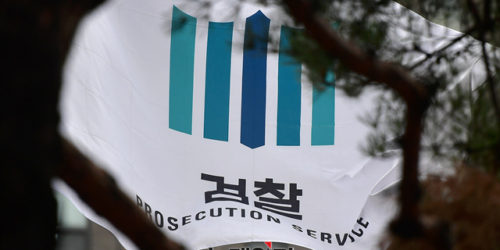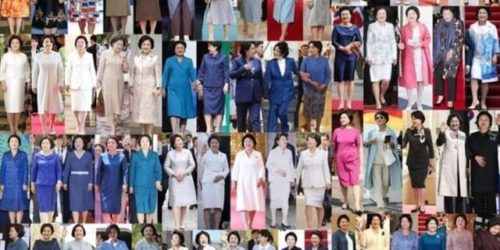Moon Jae-in Regime Harassed Two Intelligence Colonels, Destroyed HUMINT Network, Severely Degraded KDIC Capability
2022-11-9, Tara O

Two South Korean colonels, who had been working secret missions against North Korea for more than 20 years, and regarded as outstanding in their fields, were harassed under the Moon Jae-in administration. They are part of the Korea Defense Intelligence Command (KDIC) (국군정보사령부 abbreviated as 정보사).
Former and current KDIC officials said, “In fact, the two colonels at the core of the HUMINT (human intelligence) network were put on trial for three years during the last administration to tie their hands” and “as a result, KDIC’s key HUMINT network has collapsed.” Another added, “This organization was devastated under the Moon Jae-in administration.”
The military prosecutors began investigating the two colonels in July 2019 and charged them in January 2020. The court found them not guilty of all the charges in January 2022, which was near the end of Moon’s term. The prosecutor decided not to appeal the case. The military prosecutor who initially brought the charge has since left the military.
The prosecutor made the following claims, which were poorly written and hyperbolic:
“On November 23, 2017, although the defendants completed their task at a ____ steamed pollack restaurant in Dongdaemun district in Seoul, on the same day, although they did not need additional operations, they took [the informants] out for drinks, thereby incurring ₩98,900 ($87), which they conspired to have the victim, the Republic of Korea, pay with the operational budget…The defendants conspired to obtain property profits equivalent to ₩98,900 ($87) for the defendants themselves, and inflicted property damage equivalent to the same amount on the victim (the Republic of Korea).” (4:05)
Note: The below is the above charge in Korean:
“피고인들은 2017년 11월 23일 서울 동대문구 소재 ○○○ 동태찜 식당에서 이미 필요한 사업(판결문 각주(脚注)에 따르면 ‘공작’을 의미) 활동을 완료하였음에도, 같은 날 서울 소재 ○○ 술집에서 추가적인 사업 활동이 필요하지 않음에도 불구하고, 불필요한 술자리를 추가적으로 가지고 그로 인해 발생한 주대 9만8900원을 피해자 대한민국의 사업 활동 예산을 사용하여 결제하기로 모의하였다. (중략) 피고인들은 공모하여 피고인 본인들에게 9만8900원에 해당하는 재산상의 이익을 취득하게 하고, 피해자(대한민국)에게 같은 액수에 해당하는 재산상 손해를 가하였다.”)
The charges were spurious. Colonel A was charged with 11 offenses and Colonel B was charged with 6 offenses, including dereliction of duty, fraud, and making false reporting, which had no supporting evidence.
The court ruled that “since (the operatives’) activities are not formal and often involve inherent risks to their personal safety, it is necessary to establish a deep relationship of trust that goes beyond mere friendship,” and that “it cannot be concluded that Colonel B has already completed the necessary business activities at the ____ steamed pollack restaurant, and it does not appear to be an excessive amount to infer his intention to commit dereliction of duty.”
The ruling shows the details of their operations and intelligence network, which is also problematic as it exposes sensitive information that can lead to deaths of the informants.
Other charges were similarly spurious and lacked evidence. What the investigations and trials accomplished was to create a chilling effect on other operatives, especially the junior ones, at KDIC, curtailing their operations, because they too could be investigated and tried for doing their jobs.
The prosecutor conducting search and seizure and bringing charges for something like this is unprecedented. While they were investigated and prosecuted, they could not conduct their operations against North Korea. Two major incidents—the sending of the two fishermen defectors to North Korea against their will and the shooting/burning death of a South Korean fisheries official by North Koreans—occurred, November 7, 2019 and September 22, 2020, respectively.
A Lieutenant Colonel who has worked with both Colonels for over a decade said, “The bigger problem is that during the investigation, people related to the operations were indiscriminately investigated. As a result, all major North Korean operations networks, which are an essential core military capability that could inflict considerable strategic damage on the enemy during war and peacetime, were neutralized.
Further details are found in the Monthly Chosun article and News Daily Best:
The Moon regime incapacitated the National Intelligence Service in 2017 through a committee of unelected appointees, dismantled the Defense Security Command in 2018 and replaced it with a new entity that took away its key capabilities against North Korea, and destroyed the core capability of KDIC in 2019.
As part of North Korea’s Three Great Charters of Motherland Unification, the Kim regime calls for the dismantling of the Republic of Korea’s intelligence service.






